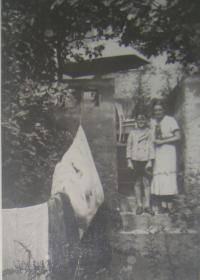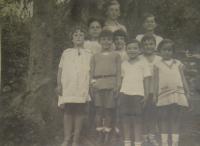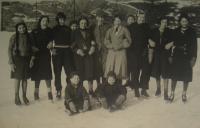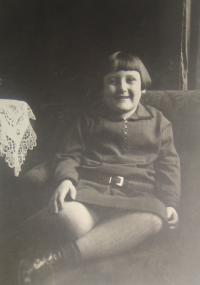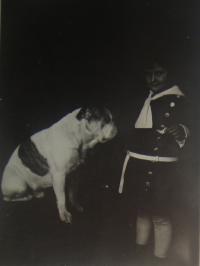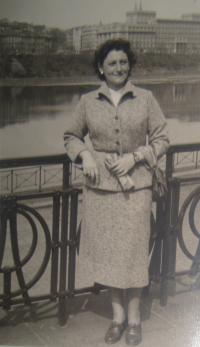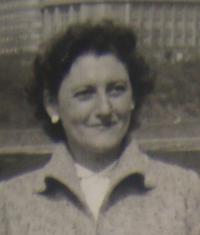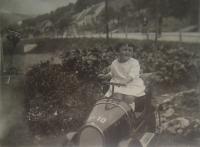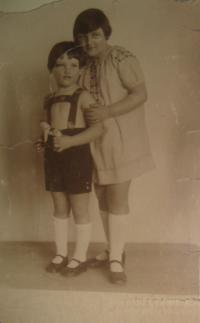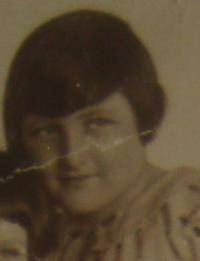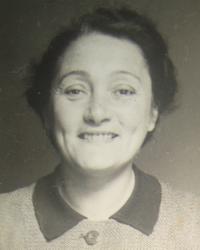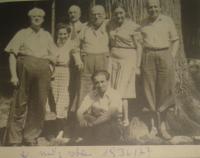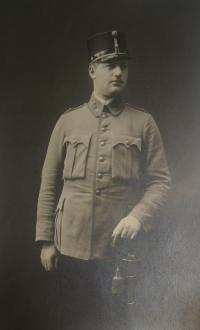I used to meet Czechs and Germans, it was all the same back then
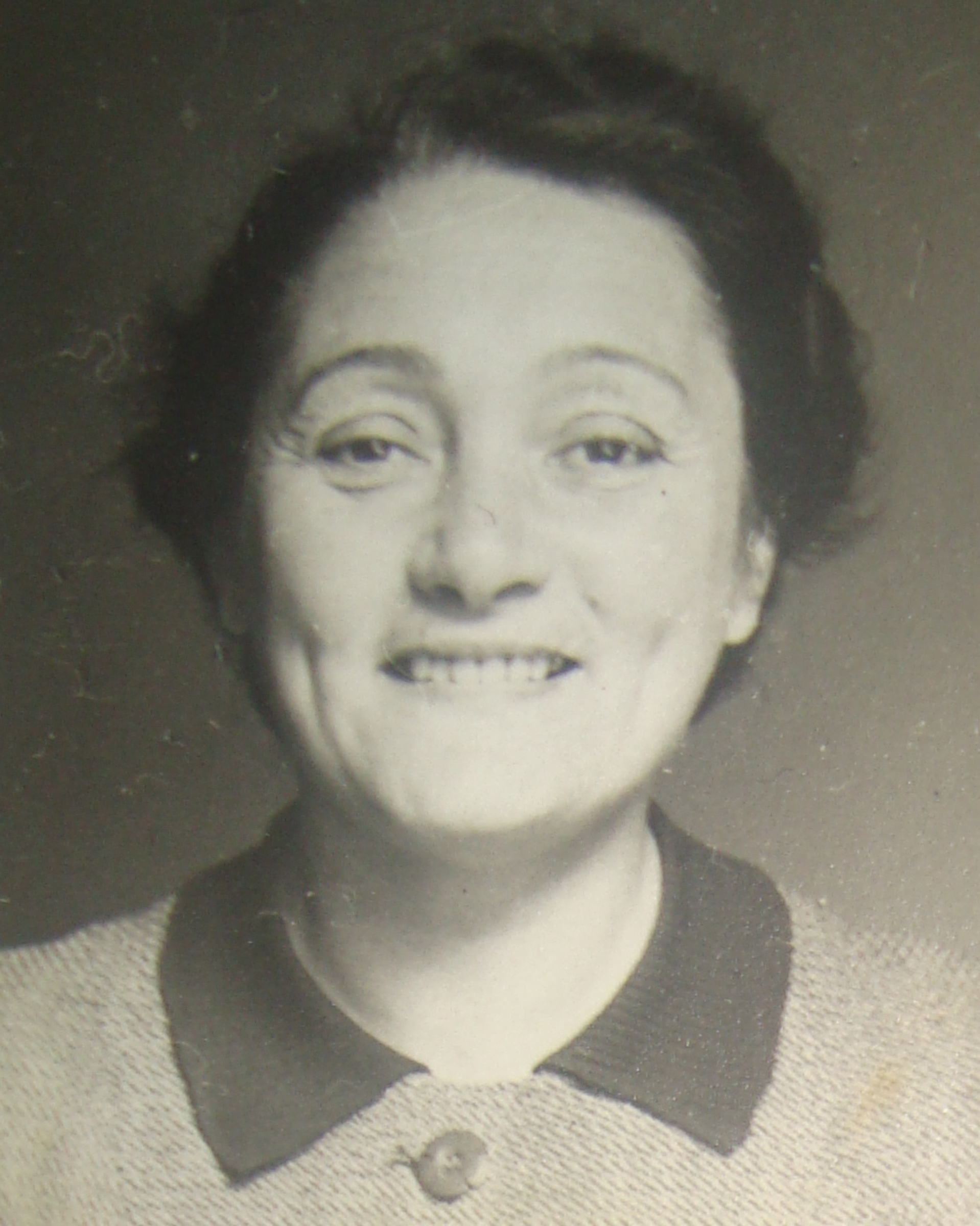
Download image
Edita Kosinová, née Spiegler, was born on 16 December, 1921 in Brno in a former Czechoslovakia in a fully assimilated Jewish family. She studied an evangelic German school, then attended a girls lyceum and after graduation worked in a shop. As she noted herself, before 1939 there were no nationalism issues in Brno and only an uprising of Nazism reminded her of her Jewish origins. Her father considered sending her and her brother Petr to England, but finally he changed his mind. From his seat of residence the Spieglers were displaced to an older part of Brno, from where the whole family was transported to Theresienstadt ghetto G on 1st December, 1941. Here they lived in Sudeten barracks and then the witness and her mother was moved to the Dresden barracks. Edita Kosinová worked in Theresienstadt as the main nurse in infection hospital due to that her parents and brother were saved from transports to east for some time. Yet on 15 May, 1944 her parents were placed in a transport and also her brother Petr with his girlfriend enlisted together with them. Both parents went to a gas chamber in 1944 and her brother went to several other concentration camps Schwarzheide and Sachsenhausen-Oranienburg, before he was shot (probably) in March 1945. The witness remained in Theresienstadt. While treating patients she was infected by typhoid in 1945. After returning back to Brno she didn’t get back her flat nor shop, as her father pronounced German nationality in 1933. The witness left to work in Žatec as a nurse and met her future husband in a consulting room. She was supposed to leave for Australia to meet her relatives so she married soon, yet her husband, who served as a soldier in Žatec, was sent to Laušan mine near Kladno and then to Theresienstadt apparently due to resistance group Prague-Zatec. In the end he got a blue book and together they moved to Prague, where Edita Kosinová has been living until today. Edita Kosinová died on 26 August 2018.
